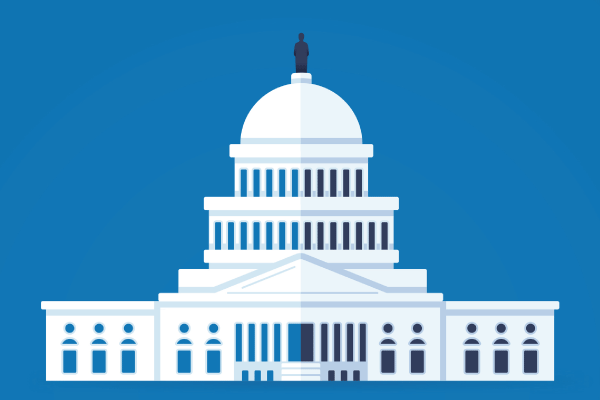Government Relations
Amid Budget Process, U.S. House Underlines Value of Behavioral Science
Lawmakers note contributions of NSF, NIH-funded science

This summer, as the U.S. Congress worked to develop the country’s budget for fiscal year 2021, behavioral science landed critical mentions among lawmakers’ priorities, a reflection of APS’s advocacy work with policymakers.
In one such statement, the House appropriations subcommittee that funds the National Science Foundation (NSF) noted the value of NSF’s Directorate for Social, Behavioral, and Economic (SBE) Sciences, the central funder of psychological science at the agency. In the explanatory report connected to the appropriations bill, the subcommittee wrote that it “supports SBE and recognizes the fundamental importance of the research it supports,” recommending that SBE’s budget be protected from disproportionate cuts.
This language is critical, given the directorate’s history of being targeted for budget cuts or elimination—outcomes that have not been proposed for some time, thanks to fierce advocacy efforts by APS and others in behavioral science.
In a second success for the field, the subcommittee that supports the National Institutes of Health (NIH) lauded the value of behavioral science and called on NIH to take a close look at its support for psychological science and related sciences.
“Most of the leading public health issues facing our nation—including cancer, addiction, heart disease, mental illness, diabetes, violence, and AIDS—are rooted in individual and social behavior, yet behavioral science is decentralized across NIH’s Institutes and Centers, and the NIH commitment to manage and directly fund this important research is limited,” the subcommittee wrote. The report called on NIH to convene an advisory panel of behavioral scientists to provide recommendations on how to better realize health benefits by drawing from the agency’s behavioral research.
Congress’s support is positive news for psychological science and APS members, and it would not have happened without APS’s advocacy efforts on Capitol Hill. In addition to submitting testimony to Congress on these issues, APS visited with many House and Senate offices, speaking on the value of NSF’s SBE directorate and describing APS Members’ concerns about the status of behavioral science at NIH, especially the agency’s expansion of its definition of clinical trials to include basic behavioral research, which APS continues to oppose.
Congress has been receptive to learning about these topics, as illustrated by the excerpts from the appropriations report above.
“The U.S.’s modest support for psychological science research does not match the outsized role behavior plays in health and in other diverse areas such as economic productivity, education, systemic racial inequities, technology, and many others,” said APS Executive Director Sarah Brookhart. “We thank the House for recognizing the value of our field in the annual appropriations of NSF and NIH. This is an important step toward bringing federal support for the study of behavior into proportion with its importance.
“As we await a vaccine or cure for the pandemic, the only tools we have available are behavioral in nature,” Brookhart added. “It’s clearer than ever that the U.S.’s science agencies should be lending their full support to ensuring a strong and effective psychological science enterprise.”
The House appropriations bills and reports are just a part of Congress’s budgeting process. As of mid-August, the Senate had not begun its work on these appropriations. Nevertheless, reports from the House carry great weight with federal agencies, and APS will continue to work with NSF and NIH to ensure the report language—and the important message it contains—receives full consideration.





APS regularly opens certain online articles for discussion on our website. Effective February 2021, you must be a logged-in APS member to post comments. By posting a comment, you agree to our Community Guidelines and the display of your profile information, including your name and affiliation. Any opinions, findings, conclusions, or recommendations present in article comments are those of the writers and do not necessarily reflect the views of APS or the article’s author. For more information, please see our Community Guidelines.
Please login with your APS account to comment.